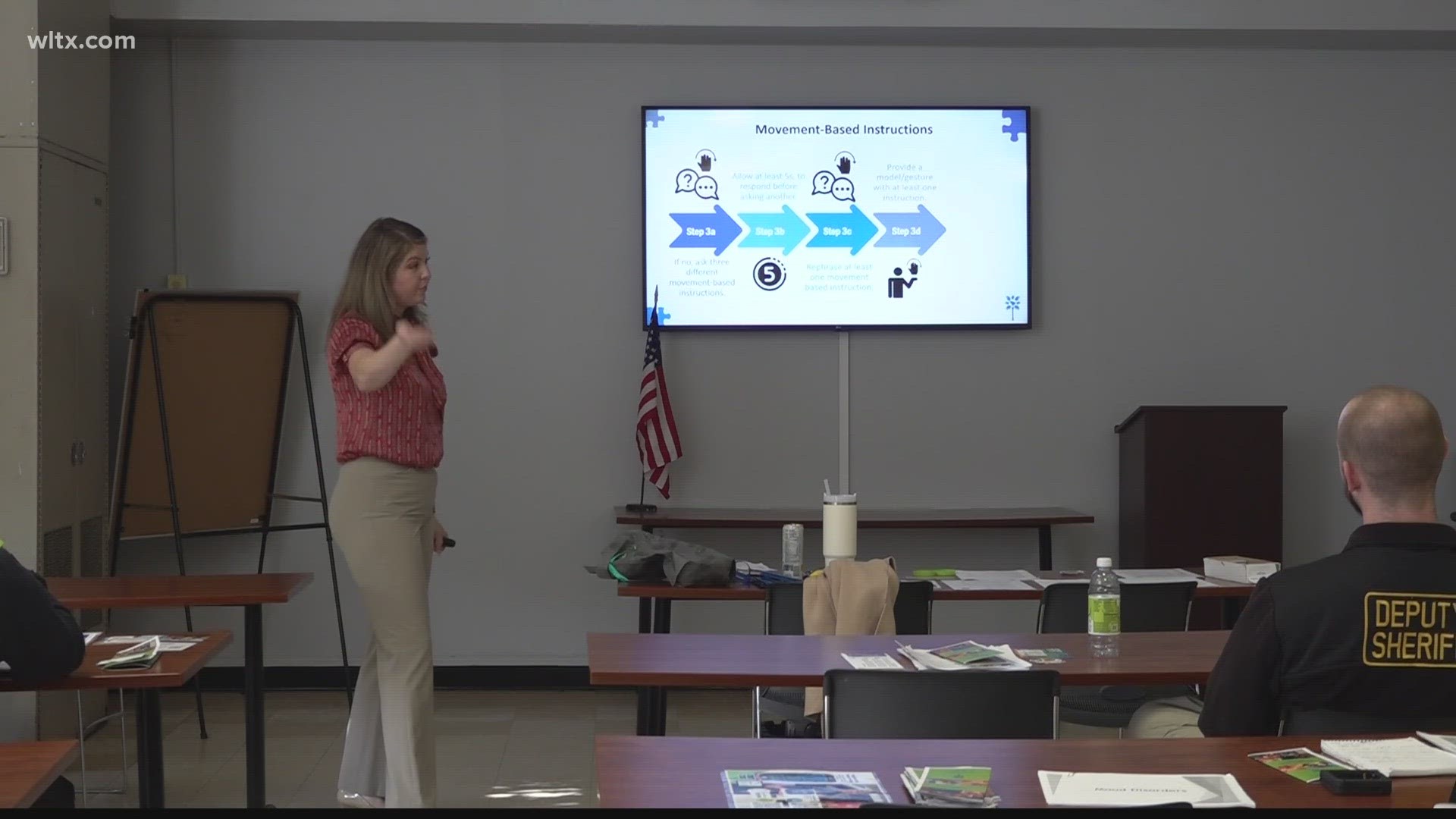COLUMBIA, S.C. — Richland County Deputies, Lexington Police, and Airport Police have been learning how to better understand the characteristics of autism, and how to apply that knowledge when responding to cases that involve people with autism.
“20% of our folks diagnosed with autism have encountered law enforcement, so that's 1 in 5 of all of our individuals with an autism diagnosis that interact with the police,” said Stephanie Turner, Autism Division Director at the South Carolina Department of Disabilities & Special Needs.
Turner has been teaching evidence-based approaches from a portion of the National Alliance on Mental Illness SC's crisis intervention training (CIT) to deputies across the state to equip them to de-escalate tense situations.
Experts say some people with autism may not respond the way others do when they encounter law enforcement.
“We need to match their communication level so that they can comply in a dangerous situation," Turner said.
First, Turner said, there are full-sentence questions that can be complex. Then they move on to steps two and three.
"Two-word instructions giving them one-step instructions of what to do, you could pair that with a gesture, so if they don't understand what you are saying at least they understand your motion. And the last one would be imitation so mirroring – you do it, they do it right after,” Turner explained.
Frederick Boyce with Richland County Sheriff's Department Region 4 is one of those in training.
“There is a big portion of this course where they are talking about de-escalation, you know, not always going to a hands-on approach, you know? We're training to, you know, we never know what's going to happen," Boyce said. "You know things can go a different direction in the blink of an eye, so we’re always being hyper-vigilant on things that are going on so those things are kinda cues we look for, and knowing this now and knowing those cues that easily kinda might keep us more alert, we know it might be a person with autism and we might just need to ask a few more questions before we go further.”
The Richland County Sheriff's Department is looking to have two crisis intervention team officers on each squad.
On Friday those in the week-long course will have hands-on role-playing for officers to better understand de-escalation with those who have autism.

